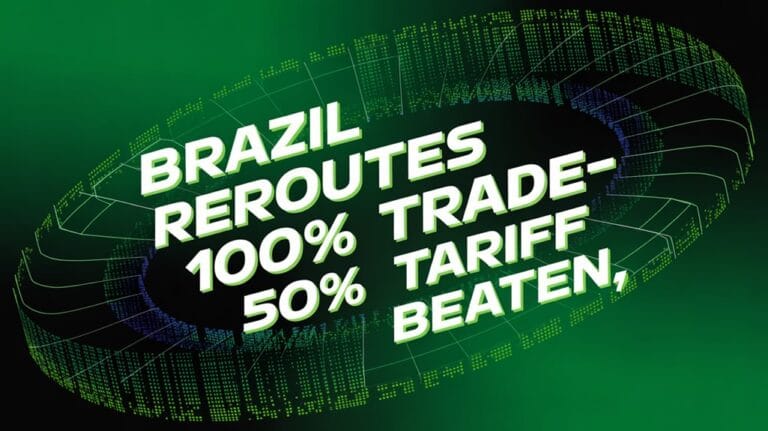After the White House slapped a sudden 50 percent tariff on all Brazilian goods starting August 1, Brazil’s coffee farmers, cattle ranchers, and seafood traders woke up to a new reality where their main customer may soon walk away. The proposal that Trump announced had jumped from 10% to 50%, adding urgency but also clarity to exporters’ strategic planning.
Instead of panicking, producers turned to trade diversification, shipping more beans to Germany, more beef to China, and more shrimp to Japan. Exemptions covering 42% of Brazil’s total export volume to the U.S. provided some relief for key sectors. Export volumes in October matched last year’s levels, showing solid agricultural resilience.
Brazilian producers quietly rerouted cargo, matching October exports without America.
The government also acted. Brasília filed a dispute at the World Trade Organization one week after the tariffs took effect. Officials argued the hike broke global trade rules. Negotiators opened talks with Washington while warning they could use the Economic Reciprocity Act to raise duties on U.S. products if needed.
Inventories built up for a few weeks, then moved. Traders rerouted cargos to European ports and booked extra space on east-bound ships. Shipping lines added a new fortnightly service from Santos to Rotterdam, cutting travel time by four days.
Coffee cooperatives in Minas Gerais launched online auctions aimed at Asian buyers; two million bags changed hands in September alone.
Ranchers pivoted too. They certified more plants for halal and kosher standards to meet Middle Eastern demand. By November, beef exports outside the U.S. had risen 28 percent compared with the same period in 2024.
Combined sales kept national export earnings steady, cushioning farm incomes.
Supply chains adjusted. Warehouses that once catered only to North American importers rewired cooling systems to handle Asian pallet sizes. Trucking firms installed bilingual GPS systems to speed paperwork at alternative ports.
Each tweak widened Brazil’s global footprint while shrinking reliance on any single market.
Financial markets took note. The real faltered the initial trading day after the tariff news, then steadied as new contracts were announced.
An São Paulo stock index of agribusiness firms closed the year up 7 percent, outperforming the broader market. Analysts credit better diversification and fast adaptation for the rebound.




